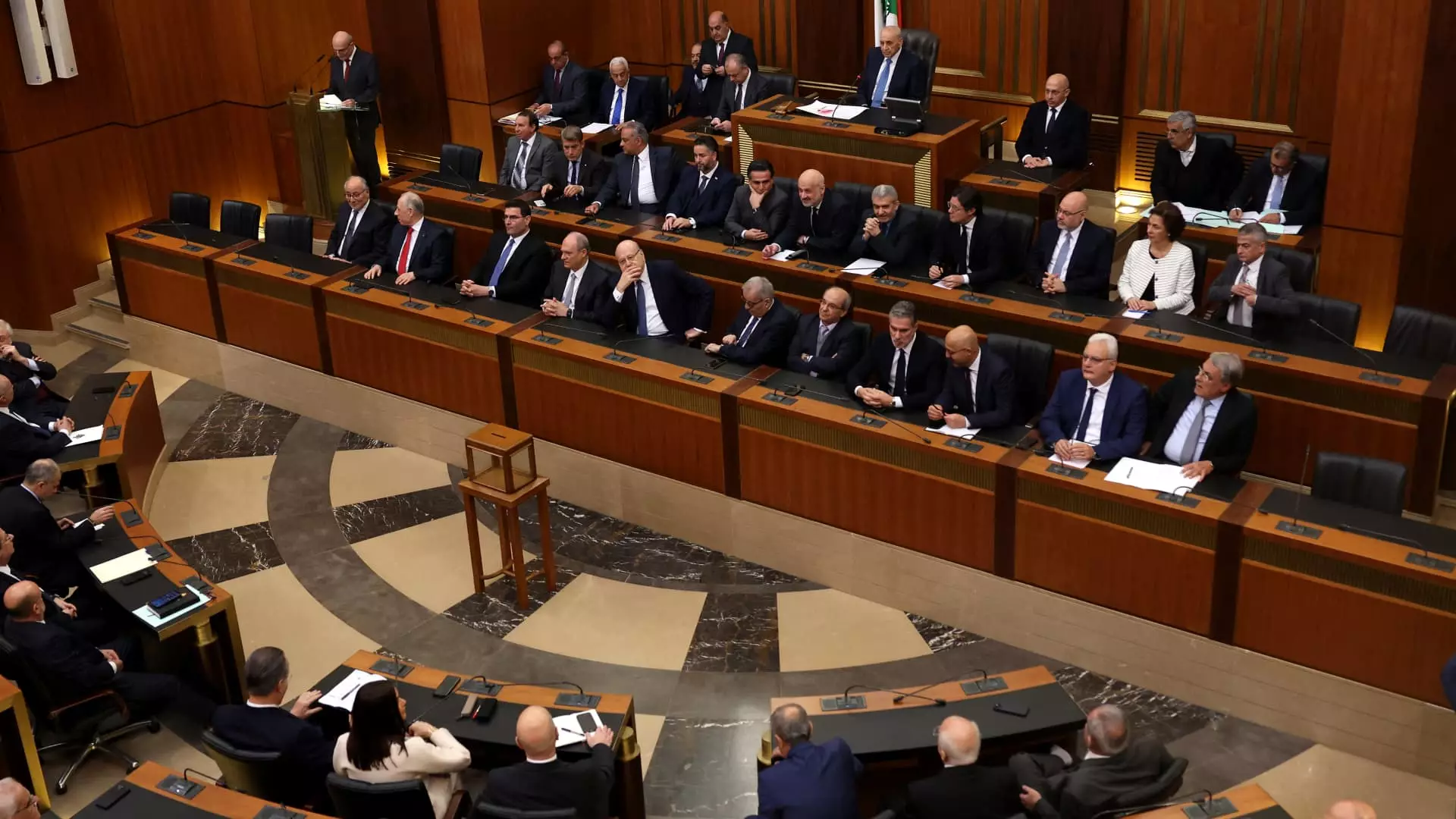On a pivotal Thursday, Lebanon’s parliament, amidst deep-seated political turmoil, elected General Joseph Aoun as the nation’s new president, effectively filling a role that has been unoccupied since Michel Aoun’s term came to an end in October 2022. Aoun’s ascent to the presidency reflects a significant recalibration in Lebanon’s political landscape, as it highlights a notable decline in the influence of Hezbollah, the Iran-backed militant group that has long held considerable sway over Lebanon’s politics. This moment serves as a testament to shifting alliances both within Lebanon and across the broader Middle Eastern region.
General Joseph Aoun, a figure known to have the backing of the United States, gained momentum in his bid for presidency significantly after Hezbollah’s initial candidate, Suleiman Frangieh, withdrew in a surprising turn of events. Frangieh’s decision to support Aoun illustrates the shifting dynamics in Lebanese politics, indicating that Hezbollah, after suffering considerable losses in last year’s war with Israel, is losing its grip on power.
The implications of Aoun’s election extend beyond Lebanon’s borders, resonating within the larger geopolitical arena in the Middle East. It marks a potential revival of Saudi influence in a region where Iranian dominance had been increasingly pronounced. The Saudi response to Aoun’s candidacy has been significant, as envoys from Saudi Arabia, France, and the United States reportedly made clear that Lebanon’s access to international financial aid was contingent upon the election of a president who could establish governance, indicative of a collaborative international effort to stabilize the nation.
For Lebanon, which has been grappling with an economic crisis exacerbated since 2019, this election symbolizes not just a shift in political power but also a desperate hope for rebuilding the state’s fractured institutions. A huge financial backing from the international community, particularly from Gulf states, is poised to be essential in the recovery process, especially after the catastrophic costs attributed to last year’s war, estimated by the World Bank to be as high as $8.5 billion.
While the election of Joseph Aoun is a significant step towards establishing a functional Lebanese government, considerable challenges still lie ahead. The nation’s governance model, characterized by its complex sectarian power-sharing arrangements, requires Aoun to engage in negotiations with the parliament to nominate a Sunni Muslim prime minister, a process often fraught with difficulties as competing factions vie for political power and ministerial positions. Given the fragmentation of the Lebanese political landscape, the question remains whether Aoun can effectively navigate these negotiations to foster a united and stable government.
Aoun’s role is further complicated by the need to maintain a balanced stance between external pressures and internal divisions. As he prepares to assume office, he must also work towards enforcing the ceasefire established between Israel and Hezbollah, a process that could be contentious given the historical animosities and sectarian tensions that have long plagued Lebanon.
As General Joseph Aoun steps into his new role, the eyes of the international community will be closely watching his actions. His leadership will be critical in determining whether Lebanon can achieve political stability and economic recovery. For many Lebanese citizens, hope is tinged with skepticism, as they have endured years of political gridlock, corruption, and financial collapse. However, Aoun’s military background and established relationship with the U.S. could serve as vital components in the country’s rebuilding efforts, provided he can successfully align internal factions and secure the necessary external support.
The election of Joseph Aoun signals a transformative moment in Lebanon’s political fabric and reflects broader regional dynamics. As Lebanon confronts its myriad challenges, the new presidency may offer a glimmer of hope for restoration and revival, but the path ahead will require adept leadership, collaborative governance, and sustained international engagement to overcome the hurdles that lay ahead.


Leave a Reply